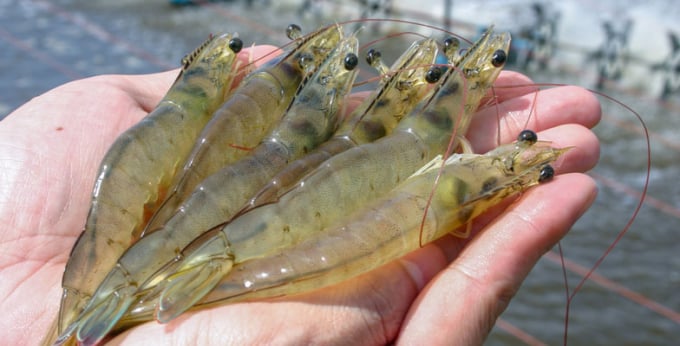November 27, 2025 | 09:23 GMT +7
November 27, 2025 | 09:23 GMT +7
Hotline: 0913.378.918
November 27, 2025 | 09:23 GMT +7
Hotline: 0913.378.918

The use of antibiotics in global aquaculture are increasing sharply. Photo: TL.
According to VASEP, a new study published in Nature (USA), warns that the use of antibiotics in aquaculture will increase by about 33% between 2017 and 2030 globally.
Specifically, it is estimated that the use of antibiotics in global aquaculture will increase from 10,259 tons in 2017 to 13,600 tons in 2030.
Currently, the Asia-Pacific region accounts for the majority of antibiotic consumption in aquaculture (accounting for 93.8%). In particular, the most use of antibiotics is in China, accounting for 57.9% of the total amount of antibiotics used in global aquaculture.
Also according to the above study, other major antibiotic consuming countries were India (11.3%), Indonesia (8.6%) and Vietnam (5%).
According to the study's authors, this growth in antibiotic use needs to be addressed urgently because overuse of antibiotics in livestock leads to antibiotic resistance.
Translated by Thu Hang

(VAN) Le Hoai Trung, Member of the Communist Party of Vietnam Central Committee and Minister of Foreign Affairs, held talks with Vi Thao, Chairman of the Guangxi Zhuang Autonomous Region (China) this week.

(VAN) The Mekong River Commission adopts the 2026 - 2030 Strategic Plan with a people-centered approach.
/2025/11/26/1720-1-200855_132.jpg)
(VAN) Viet Nam and Japan have many conditions to expand cooperation on climate change adaptation, particularly in disaster risk management based on advanced technologies.

(VAN) The strong development of digital technology and artificial intelligence is opening up opportunities to transform science and technology into a 'Magic eye' for disaster forecasting and early warning.

Applying vaccines and proactive disease prevention helps pig herds stay healthy, maintain productivity, reduce risks, and decrease reliance on antibiotics in modern livestock farming.

(VAN) Many advanced agricultural technologies and products were shared at the Viet Nam - South Korea Agricultural Technology Introduction, Trade Promotion, and Connection Seminar 2025.

(VAN) Minister Tran Duc Thang hopes to strengthen connections and exchanges with China in agriculture and environment sector through the Embassy of Vietnam in Beijing.